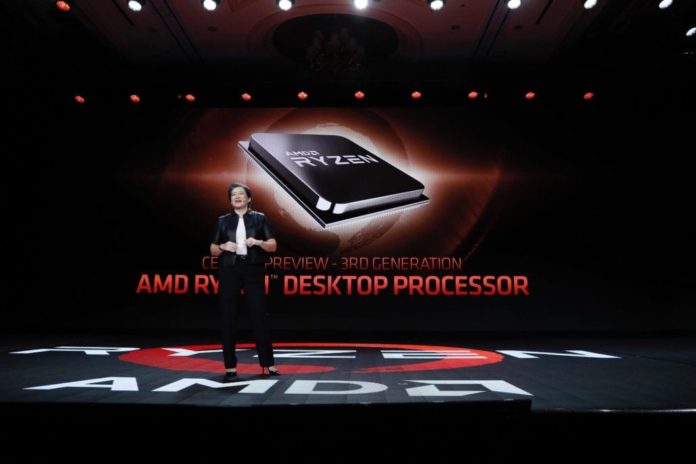According to a report from DigiTimes, AMD’s chip sales should grow by a considerable margin in the second quarter of 2019. This can be attributed to the upcoming Zen2 based Ryzen 3000 and Eypc “Rome” CPUs and the Navi GPUs that will either be launched alongside the former or a while after. Both the lineups will be based on the 7nm process, and till date, AMD is the only chipmaker to leverage it. In fact, by the end of this year, the company will have switched to the 7nm node across all its flagship products.

AMD CEO, Dr. Lisa Su is expected to take the center-stage at a pre-Computex press conference by delivering the event’s keynote. The launch of the Zen2 based CPUs is almost certain, but there’s a high possibility that the capabilities of Navi might also be discussed. The Ryzen 3000 chips will succeed the Zen+ based Ryzen 2000 series, and a more mature design promises better clocks and IPC. Rome, on the other hand, will be part of AMD’s server offerings with up to 64 cores and 128 threads. Many key firms like Amazon and Google have already embraced AMD’s 7nm based chips, and with the Zen2 family that should only increase. Samsung Galaxy Note 10 Budget Edition will Feature Lesser Cameras.
AMD Market Share in Japan Doubled in 2018 as 14nm Chip Shortages Hinder Intel

Earlier today at their Innovation Day at San Francisco, Intel made some major announcements including the release of the Cascade
NVIDIA Stocks Rose by 16.4% in March After Continous Declines
AMD Zen2 Vs Intel Cascade Lake
There are a few core differences between Intel and AMD’s products. First and foremost, the former is still stuck on the 14nm node while AMD has successfully moved to the 7nm. Secondly, the Cascade Lake chips will only have support for PCIe 3.0 while the Zen2 CPUs will have support for up to PCIe 4.0. Other than that, both the chips will use a ton of DDR4 RAM with Intel also sneaking in the Optane memory for better latency. As far as the clocks are concerned, I expect at least AMD’s Ryzen 3000 lineup to have better frequencies than Intel’s 9th generation SKUs, and the same goes for cache as well.

Lastly, coming to the conclusion, there are multiple reasons for AMD’s Ryze. Intel’s 14nm shortages are still not over and this has prompted OEMs and motherboard manufacturer’s alike, to go adopt the Ryzen series. Their aggressive pricing certainly gives them more reason to make the shift. Laptop vendors like HP, Lenovo, Acer
All in all, things seem to be going in AMD’s favor and Intel is set to lose a major part of the CPU market. As for the GPU side of things, I’m still not too sure about Navi. Google’s Stadia and the next-gen consoles might have embraced them, but the PC gaming space has a lot of options with NVIDIA’s GTX 16 series cards offering unbeatable performance at affordable prices.
Read more:
- Borderlands 3 to be Optimized for AMD Hardware; Exclusive to Epic Store
- AMD Zen2 Ryzen 3000 CPUs and Radeon Navi GPUs Recieve Support on HWiNFO


